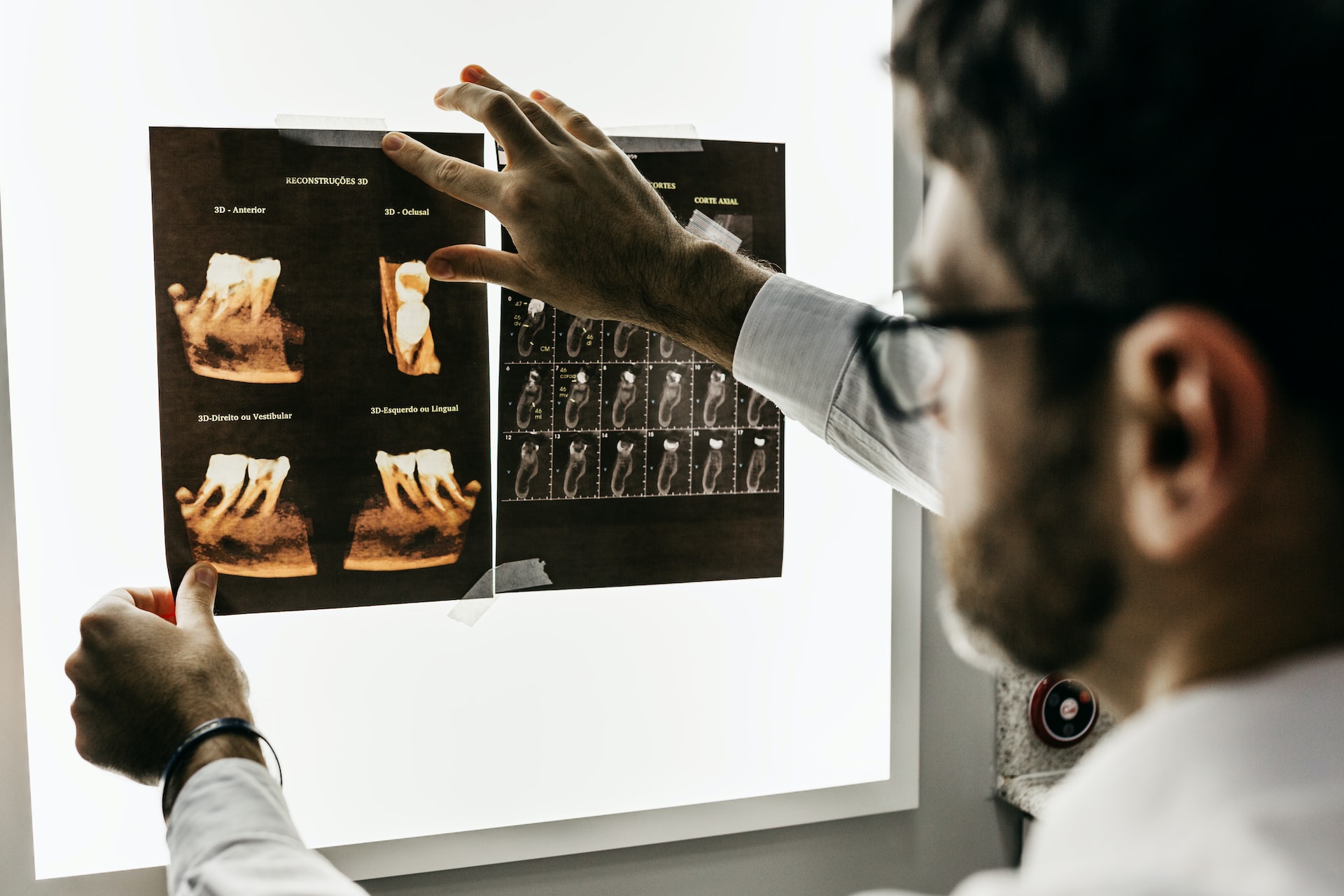Feb
27

Gum disease is a common condition, but that doesn’t mean that it shouldn’t be taken seriously. If left untreated, gum disease can increase your tooth sensitivity, cause your gums to recede, and even change the alignment of your teeth and jaw. Gum disease is best treated when caught early, which is why we’re going to take a look at 5 warning signs of gum disease that should warrant a trip to your dentist. Let’s get started.
What is gum disease?
Gum disease is an infection of the soft tissue surrounding your teeth, typically caused by a build-up of hardened plaque (also known as tartar). While not a life-threatening issue, gum disease can still cause significant pain, bleeding and inflammation, and can even cause your gums to recede and your teeth to become more sensitive.
What are the most common signs of gum disease?
So, what should you look out for when it comes to spotting gum disease? Here are five symptoms that might warrant a trip to your dentist:
Bleeding gums
One of the first signs of gum disease is bleeding gums, especially after brushing and flossing. This is due to your gums being inflamed and sensitive due to the plaque build-up, and therefore more susceptible to bleeding when touched vigorously. Do note that while this is a key symptom of gum disease, bleeding after brushing isn’t always necessarily a symptom of an underlying problem; you may simply be brushing your teeth too hard, or using an old toothbrush brush with rougher bristles. Look out for persistent bleeding, and make sure to replace old or worn-out toothbrushes every 3-6 months.
Bleeding gums is one of the earliest signs of gum disease, so alerting your dentist early can help the condition from progressing and causing irreversible damage to your gums.
Tender gums
If your gums are beginning to feel tender and painful to the touch, this can be another warning sign of gum disease. As gum disease causes swelling and inflammation, you might experience discomfort when pressing on your gums, chewing hard food, or brushing your teeth. That being said, if you only notice tenderness and pain on one tooth, it’s more likely due to decay or a tooth abscess forming. For gum disease, look out for all-over tenderness and discomfort.
Bad breath
Persistent bad breath or an unpleasant taste in your mouth can be signs of advanced periodontal (gum) disease. The bacteria causing the infection produce toxins that seep into your bloodstream, causing halitosis (bad breath), and might also leave a bitter taste lingering in your mouth. While it might be difficult to detect your own bad breath, if you notice a persistent bad taste (even after brushing your teeth) you might want to schedule an appointment with your dentist.
Do note that bad breath is a later symptom of gum disease, and can be explained by other causes; if you only have bad breath but no associated pain, swelling, discomfort or bleeding, your bad breath may be caused by something else.
Red and swollen gums
Another sign of gum disease is red, swollen gums; this is the inflammation taking hold, and this redness should be instantly noticeable around your front and bottom teeth. While gum disease-associated bleeding tends to occur after brushing or flossing, swelling and redness can persist even when you’re not touching your teeth; keep an eye out for any area of your gums that appears redder and more swollen than any others; and schedule an appointment with your dentist if the swelling persists.
Tooth sensitivity
As gum disease can wear away at your healthy gum tissue, your teeth can end up being exposed, increasing sensitivity and intolerance to hot and cold temperatures. This can cause sharp, stabbing pains in your teeth whenever you’re eating hot or cold food, or even when brushing your teeth or drinking a glass of water; this is because your nerve endings have been exposed due to your receding gum line.
If you find yourself with increasing teeth sensitivity – especially if you’ve never experienced it before – head to your dentist for an assessment. Oftentimes, early symptoms of gum disease can be treated and managed if caught early enough. Remember that it’s always better to catch gum disease early on, as advanced cases may require receding gums treatment to repair any damage done.
What causes gum disease? (And how to prevent it!)
While gum disease is directly caused by a build-up of plaque on the teeth, here are some associated risk factors that make you increasingly susceptible to the condition:
- Poor oral hygiene. Plaque build-up is usually caused by a lack of oral hygiene, so it’s important to keep your mouth and gums healthy. We’d recommend brushing your teeth daily for two minutes in the morning and the evening, and flossing once a day. You can also use an antiseptic mouthwash at least twice a week to reduce plaque buildup and fight bacteria, and replace your toothbrush every 3-6 months when the bristles start to fray.
- Lack of dental checkups. Keeping regular with your dental checkups will allow your dentist to spot the early signs of gum disease, who will then be able to advise you on how to manage symptoms or prevent the condition worsening.
- Smoking. Smokers are much more likely to get gum disease, as the toxins in tobacco products help to wear away at the gum’s healthy tissue. Avoid smoking (or attempt to quit) to keep your gums and teeth as healthy as possible.
Read Next:










